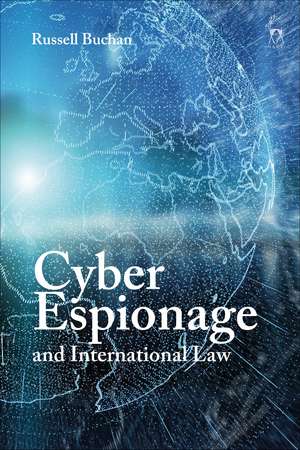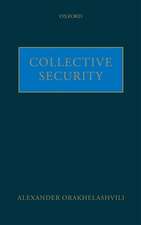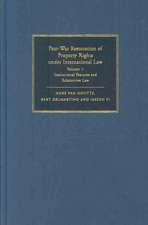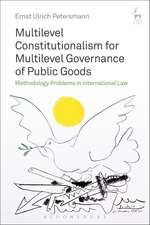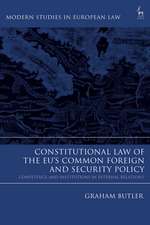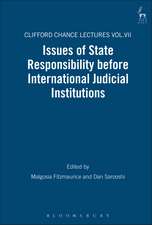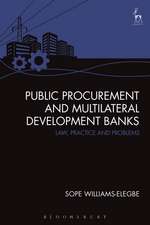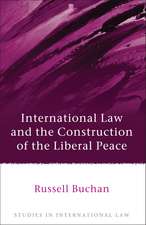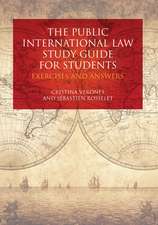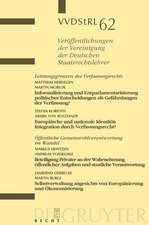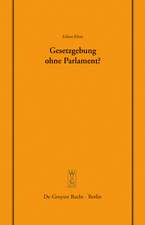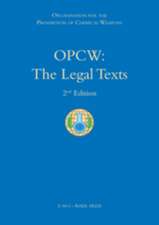Cyber Espionage and International Law
Autor Dr Russell Buchanen Limba Engleză Paperback – 24 feb 2021
| Toate formatele și edițiile | Preț | Express |
|---|---|---|
| Paperback (1) | 263.92 lei 6-8 săpt. | |
| Bloomsbury Publishing – 24 feb 2021 | 263.92 lei 6-8 săpt. | |
| Hardback (1) | 539.18 lei 6-8 săpt. | |
| Bloomsbury Publishing – 26 dec 2018 | 539.18 lei 6-8 săpt. |
Preț: 263.92 lei
Preț vechi: 339.57 lei
-22% Nou
Puncte Express: 396
Preț estimativ în valută:
50.50€ • 54.00$ • 42.11£
50.50€ • 54.00$ • 42.11£
Carte tipărită la comandă
Livrare economică 18 aprilie-02 mai
Preluare comenzi: 021 569.72.76
Specificații
ISBN-13: 9781509945016
ISBN-10: 1509945016
Pagini: 248
Dimensiuni: 156 x 234 x 18 mm
Greutate: 0.35 kg
Editura: Bloomsbury Publishing
Colecția Hart Publishing
Locul publicării:London, United Kingdom
ISBN-10: 1509945016
Pagini: 248
Dimensiuni: 156 x 234 x 18 mm
Greutate: 0.35 kg
Editura: Bloomsbury Publishing
Colecția Hart Publishing
Locul publicării:London, United Kingdom
Caracteristici
Written by one of the emerging stars in the field of cyber espionage.
Notă biografică
Russell Buchan is Senior Lecturer in law at the University of Sheffield.
Cuprins
1. Background 2. The Argument 3. Chapter Overview 1. Defining Cyber Espionage 1. Introduction 2. The Intelligence Community 3. Cyber Espionage: Th e Copying of Confidential Data 4. Close and Remote Access Cyber Espionage 5. Secrecy and Cyber Espionage 6. Non-Consensual Information Gathering7. Political and Economic Cyber Espionage and the Role of State and Non-State Actors 8. Cyber Espionage and International Law 9. Peacetime Cyber Espionage 10. Conclusion 2. Cyber Espionage and International Peace and Security 1. Introduction 2. Political Cyber Espionage 3. Economic Cyber Espionage 4. Conclusion 3. Cyber Espionage and the Rules of Territorial Sovereignty, Non-Intervention and the Non-Use of Force 1. Introduction 2. The Rule of Territorial Sovereignty 3. The Rule of Non-Intervention 4. The Prohibition on the Use of Force 5. Conclusion4. Cyber Espionage and Diplomatic and Consular Law 1. Introduction 2. Cyber Espionage Against Diplomatic Missions and Consular Posts 3. The Use of Diplomatic Missions and Consular Posts for Cyber Espionage 4. Conclusion5. Cyber Espionage and International Human Rights Law 1. Introduction 2. The Extraterritorial Application of Human Rights Treaties 3. The Right to Privacy 4. Restricting the Right to Privacy 5. Conclusion6. Economic Cyber Espionage and the World Trade Organization 1. Introduction 2. Economic Cyber Espionage as a WTO 'Measure' 3. Nullification or Impairment of a Benefit 4. Substantive Obligations under WTO Law 5. Non-Violation Complaints 6. Conclusion7. Cyber Espionage and the Existence of Customary International Law Exceptions 1. Introduction 2. Customary International Law 3. State Practice 4. Opinio Juris 5. Conclusion8. Cyber Espionage and the Doctrines of Self-Defence and Necessity 1. Introduction 2. The Doctrine of Self-Defence 3. The Doctrine of Necessity 4. Conclusion
Recenzii
Dr Russell Buchan's new book Cyber Espionage and International Law offers a timely and thorough examination of the application of existing public international law doctrines to the practice of peacetime interstate cyber intelligence operations. In doing so the book carefully walks readers through a complex wilderness of mirrors, a landscape populated by spies, saboteurs, hackers, and surveillance intermediaries. Grounding his work is a profound understanding of the foundational principles of international law, and Buchan does a superb job both introducing them to readers and making the case for their unique operation in addressing the contemporary challenges posed by new surveillance technologies. Since the dawn of the printing press there have only been a handful of books ever written on the law of nations as it applies to the second oldest profession. Buchan's work thus offers a valuable contribution to what is an emerging legal debate seeking to promote greater clarity around international rules on espionage.
[M]any legal scholars suggest that espionage is neither legal nor illegal under international law. Cyber Espionage and International Law is a strong and well-supported rebuttal of this interpretation. [E]ssential reading for anyone interested in understanding or tasked with interpreting the scope of the CSE's new powers in light of existing international law.
Buchan is not afraid to express his opinion on a number of issues throughout the monograph and the decisive, well supported and justified stance that he takes in relation to how international law rules apply to state cyber espionage is one of the unique features of this book. There is no doubt that the monograph is an important and sound contribution to the existing debate on these issues and will serve as a valuable tool to those who are new to this area of law together with the experts keen to explore the evolution of the legal regimes applicable to state cyber espionage activities.
There is much of interest and a wealth of material here... Cyber-espionage as a topic, however much avoided in polite company in the past, now more than ever needs to be subject to proper analytical discourse. This book provides a significant and rigorous contribution to that intellectual debate.
Cyber Espionage and International Law is one of the most important and complete works on cyber espionage in international scholarship, and it will be studied and analysed for many years in the future to understand the complex relationship between cyber espionage and a number of international law rules. The book's compelling arguments, its fresh and frank style, and its sound knowledge of international law rules make this monograph a fascinating and pleasant read.
Buchan's book offers a comprehensive study of the 'patchwork of norms' applicable to cyber espionage. This book, through the lenses of the dawn of cyberspace, offers a fresh look at the question relating to the international legal framework applicable to espionage. I highly recommend this book for those who are interested in cyber espionage, and more broadly in how the development of ICTs affects existing international law.
[M]any legal scholars suggest that espionage is neither legal nor illegal under international law. Cyber Espionage and International Law is a strong and well-supported rebuttal of this interpretation. [E]ssential reading for anyone interested in understanding or tasked with interpreting the scope of the CSE's new powers in light of existing international law.
Buchan is not afraid to express his opinion on a number of issues throughout the monograph and the decisive, well supported and justified stance that he takes in relation to how international law rules apply to state cyber espionage is one of the unique features of this book. There is no doubt that the monograph is an important and sound contribution to the existing debate on these issues and will serve as a valuable tool to those who are new to this area of law together with the experts keen to explore the evolution of the legal regimes applicable to state cyber espionage activities.
There is much of interest and a wealth of material here... Cyber-espionage as a topic, however much avoided in polite company in the past, now more than ever needs to be subject to proper analytical discourse. This book provides a significant and rigorous contribution to that intellectual debate.
Cyber Espionage and International Law is one of the most important and complete works on cyber espionage in international scholarship, and it will be studied and analysed for many years in the future to understand the complex relationship between cyber espionage and a number of international law rules. The book's compelling arguments, its fresh and frank style, and its sound knowledge of international law rules make this monograph a fascinating and pleasant read.
Buchan's book offers a comprehensive study of the 'patchwork of norms' applicable to cyber espionage. This book, through the lenses of the dawn of cyberspace, offers a fresh look at the question relating to the international legal framework applicable to espionage. I highly recommend this book for those who are interested in cyber espionage, and more broadly in how the development of ICTs affects existing international law.
